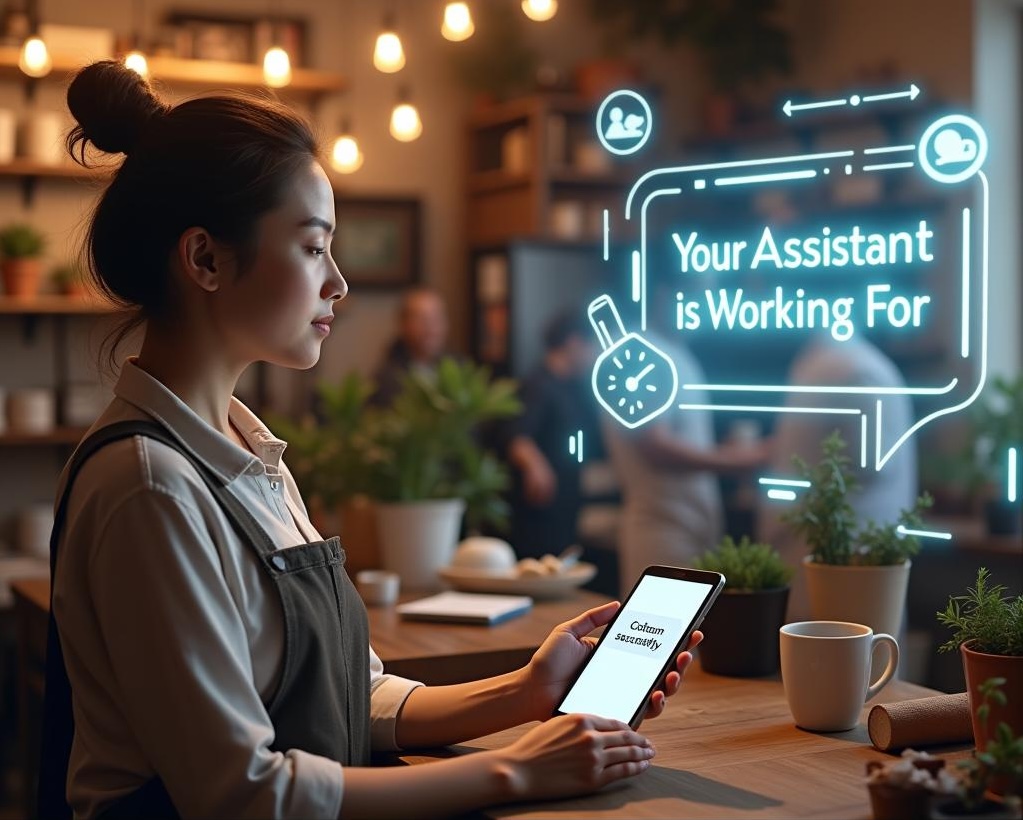How WhatsApp automation is changing business communication
Have you ever felt like you're missing out on opportunities because your team isn't responding quickly enough on WhatsApp? Over my more than two decades in marketing and technology, I've seen how speed and personalization in customer service can determine the success or failure of a business. Today I want to share with you a practical guide to getting the most out of automating WhatsApp messages, based on real-life experience and the possibilities we offer from Sintonai.
AI Agent for your business FREE
For a limited time only! Try it for free! SintonaiMaximize your sales, reduce your costs, and improve your customers' experience with our intelligent chatbots.
Every day, millions of customers expect immediacy in their conversations. In such a demanding environment, implementing automation is not only a trend, but a smart solution that is already increasing sales and improving satisfaction in many companies. If you're looking to be more efficient, increase conversions, and reduce operational burden, keep reading: this article is for you.

Why automate WhatsApp messages in your business?
When I talk to business leaders, I often ask, "How many potential customers are lost by not responding in a timely manner?" 721% of consumers in Spain say that response speed is crucial to their purchasing decision (source: Think With Google, 2024). Automating WhatsApp messages allows you to respond immediately and in a personalized way, even when your team is busy or outside of business hours.
I've personally experienced the multiplier effect of automation: from SMEs that double the number of leads they manage, to sales teams that eliminate repetitive tasks and focus on closing sales. A typical example: an online store that stops losing inquiries after 7:00 PM thanks to automated messages that inform about the order status or answer frequently asked questions.
Furthermore, there's a difficult-to-measure but fundamental benefit: the perception of professionalism. When a client receives prompt, tailored responses to their query, they feel they're in good hands. This not only builds loyalty but also encourages referrals: the most powerful form of word of mouth in the digital age.
How automation works at Sintonai and how I use it with my clients
In Sintonai We specialize in putting artificial intelligence within reach of any sales or support team. Our platform automates everything from initial greetings to responses to complex questions, all integrated with your favorite channels. I personally guide each company through the setup process, as every industry and every client are unique.
AI Agent for your business FREE
For a limited time only! Try it for free! SintonaiMaximize your sales, reduce your costs, and improve your customers' experience with our intelligent chatbots.
Imagine a real estate agency that receives dozens of inquiries every afternoon. With Sintonai, we can schedule WhatsApp messages that categorize clients based on their needs, inform them of available properties, and automatically book appointments. This way, the team only handles truly advanced cases, optimizing resources and increasing the conversion rate.
My work doesn't stop at the technical side: I review message flows with my clients, adapting the tone, information, and segmentation to what works best for their market. The goal is clear: not to appear like a robot, but rather a friendly and responsive assistant who builds trust and facilitates the sale.
Key strategies to effectively automate WhatsApp messages
Automation for the sake of automation isn't enough. To achieve real results, I always recommend three steps: clearly define objectives, understand your audience, and continuously analyze your data. For example, for an e-commerce business, it's essential to differentiate between new and returning customers: automated messages can be personalized based on purchase history or recent interactions.
Another practice that works very well is using automation as a first filter: answering basic questions and, when it detects a real purchase intent, instantly directing them to the right agent. This combination of efficiency and human touch is what truly builds loyalty.
I also recommend reviewing the tool's reports and statistics: you'll be able to measure how many automated messages have been sent, the response rate, and which types of queries convert best. This is the only way you can continually adjust and fine-tune your automation strategy.
Trends and future of automation on WhatsApp
WhatsApp Business's growth is unstoppable: by 2025, more than 60% of Spanish companies will already be using some form of automation in their digital channels. Integration with generative AI and CRM systems makes every interaction smarter and more relevant.
At Sintonai, we're investing in microsegmentation and predictive analytics: WhatsApp message automation is no longer just reactive, but proactive. For example, sending personalized recommendations before key dates or anticipating a frequently asked question after an advertising campaign.
This level of customization will make a difference in customer experience and ROI. The key is not to fall behind: the sooner you start automating, the sooner you'll see results and be able to evolve alongside the market.
Start for free: try 500 automated messages
I know that taking the leap to automating WhatsApp messages can raise questions. That's why, at Sintonai, we offer a 500-message free trial Fully functional: no commitment required and with personalized support. So you can see for yourself how easy it is to set up your flows, receive real-time statistics, and identify opportunities for improvement from day one.
Many of the teams I've worked with have transformed their customer service and increased sales from the first week. If you're curious or would like me to personally guide you through the process, don't hesitate to contact me. I'm convinced that automation can be your greatest competitive advantage in 2025.
— Manuel Jurado, CEO of Sintonai

